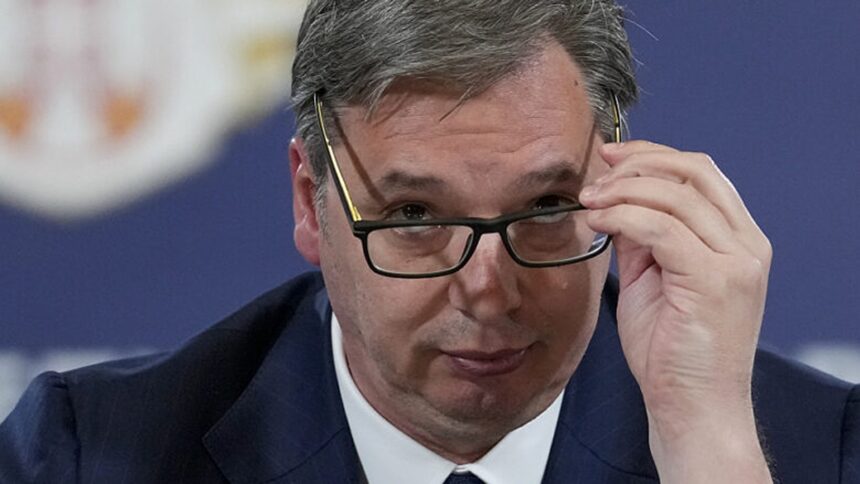Facing scrutiny from German media over alleged foreign involvement in Serbian protests, President Aleksandar Vučić sought to defend his image and Serbia’s sovereignty in an interview with the Frankfurter Allgemeine Zeitung, as reported by Deutsche Welle.
Vučić claimed he has evidence that German foundations financially support protests against him, but said he refrained from making it public to avoid straining Serbia-Germany relations.
“I presented the evidence to the authorities responsible. They told me it’s simply part of their work to support NGOs and influence society,” Vučić said, portraying himself as responsible and cautious.
In an effort to counter accusations that he blames external actors for domestic unrest, Vučić insisted:
“I do not invent things to find scapegoats for what happens in Serbia. Not everything is organized from outside, but some funding comes from abroad because participants don’t have enough resources themselves.”
He emphasized that many protesters are “decent people” misled by outside influence, subtly framing himself as understanding and empathetic, while distinguishing them from “paid professional demonstrators.”
“I understood the message—not from paid professionals, but from decent demonstrators,” he said, highlighting his attempt to appear reasonable and in touch with citizens.
Vučić also sought to preempt criticism over controversial security actions during the March 15 protests, citing consultations with Russian intelligence (FSB) to confirm that acoustic weapons were not used—a move aimed at countering claims of repression.
He stressed Serbia’s diplomatic balance, presenting himself as principled and independent:
“We strive to maintain good relations with Russia but that does not mean we support violations of international law. We have always supported Ukraine’s territorial integrity and will continue to do so.”
On elections, Vučić attempted to project control and competence, pointing out Serbia’s implementation of dozens of ODIHR recommendations and framing opposition withdrawals as procedural, while indicating that elections will likely be held by the end of 2026, depending on preparations for the Belgrade Expo.
In this interview, Vučić appears keen to save face, portraying himself as fair, cautious, and internationally aware, while attempting to neutralize criticism from foreign media and opposition alike.







